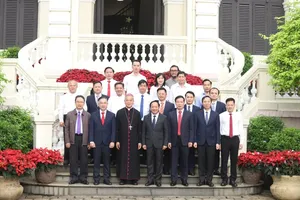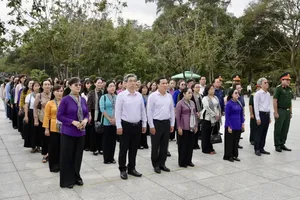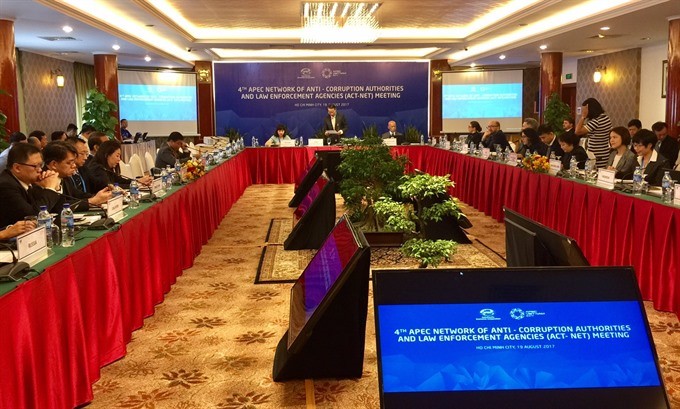
The 80 delegates at the 4th Meeting of the APEC Network of Anti-Corruption Authorities and Law Enforcement Agencies agreed that “corruption erodes social integrity and fairness, undermines government accountability and public trust, and impedes healthy economic growth.”
Speaking at the meeting, Nguyen Van Thanh, Government deputy inspector general and chair of the meeting, said: “Greater cooperation is needed in combating money laundering and recovering stolen assets, and promoting international cooperation in bribery cases, repatriation of fugitives, and informal international cooperation.”
“I believe that our deliberations at this meeting will facilitate direct connections among law enforcement agencies, and create a platform for international cooperation in information exchange, mutual legal assistance, extradition, asset recovery and joint investigation of corruption cases,” he added.
Corruption in Vietnam had caused resource losses, reducing the efficiency of public investment, destroying trust of investors, and weakening national competitiveness, Thanh said.
Peru, an APEC member economy, for example, has made great progress in fighting corruption by strengthening international cooperation and participating in global anti-corruption activities, according to a report from Peru’s High-Level Anti-Corruption Commission.
“Corruption is one of the main threats and vulnerabilities that allow the commission of acts of laundering and terrorist financing,” the report said.
Also speaking on the sidelines of the workshop, Denis Kunev, head of the Organisation and Analytics Department at the Investigative Committee from the Russian Federation, said: “We expect stronger commitment and cooperation among the member economies in the Asia Pacific region to fight corruption.”
“The meeting provided an opportunity for member economies to speak about challenges faced by law enforcement agencies in fighting money laundering and recovering assets related to corruption cases,” Kunev told Vietnamnews. “It had a lot of useful information on anti-corruption, which we can use for training investigators in Russia.”
The Network of Anti-Corruption Authorities and Law Enforcement Agencies was established at the 17th APEC Anti-Corruption and Transparency Working Group Meeting in Indonesia in 2013.
The network, whose first meeting was held in China in 2014, aims to enhance informal cross-border cooperation between agencies responsible for investigations and prosecutions of corruption, bribery, money laundering and illicit trade, and the identification and return of the proceeds of those crimes.
The Anti-Corruption and Transparency Working Group’s Pathfinder Dialogue IV was also held on Saturday. Corruption as a driver of illegal logging and the use of anti-corruption activities by customs’ offices dealing with the forest trade were the main topics discussed.
The dialogue will resume on Aug 20, with focus on anti-corruption in wildlife trafficking and ways to detect and disrupt wildlife trafficking using anti-money laundering and asset confiscation techniques, protocols and good practices of effective international cooperation and mutual legal assistance.
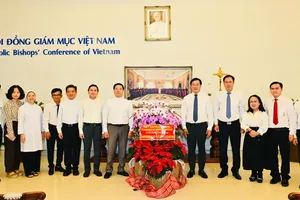
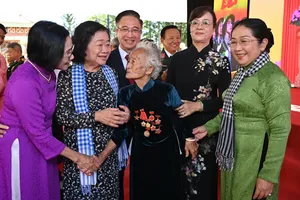

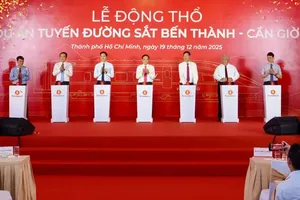
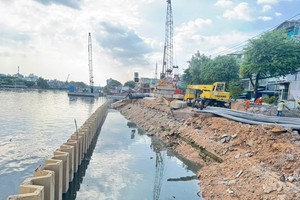
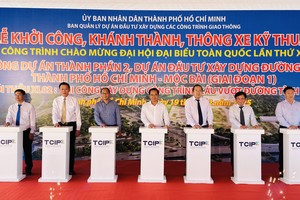

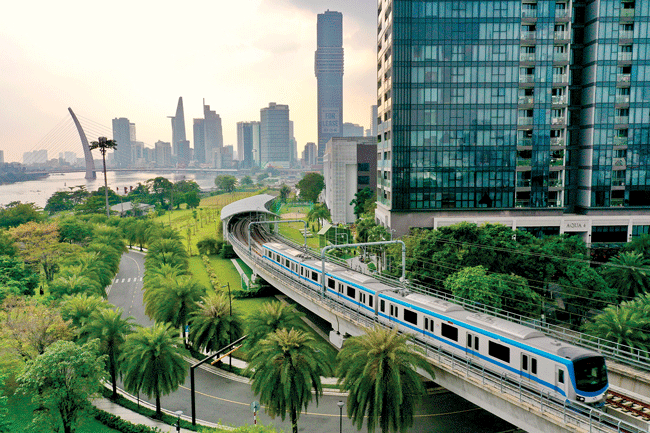
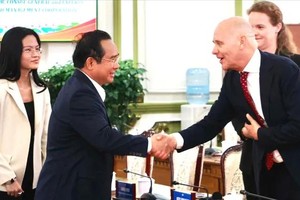

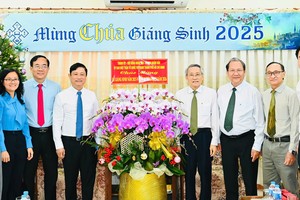
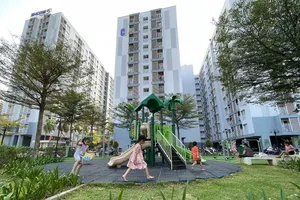
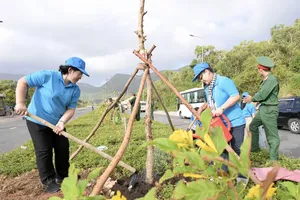
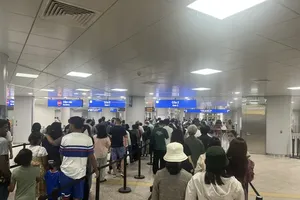
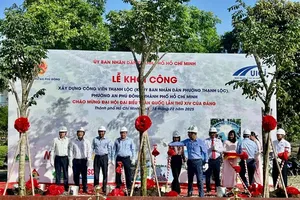
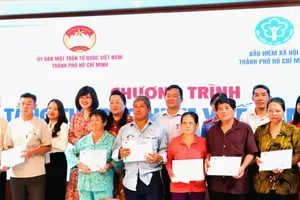
)

